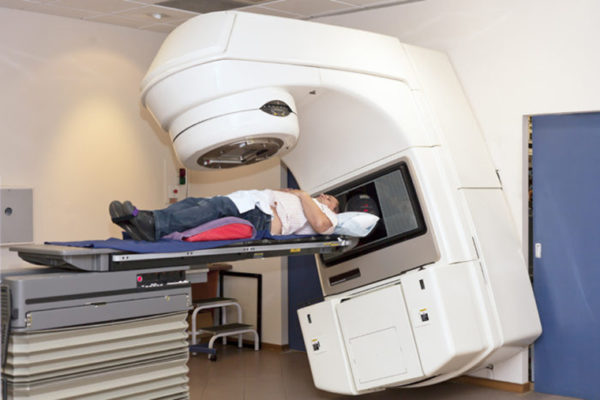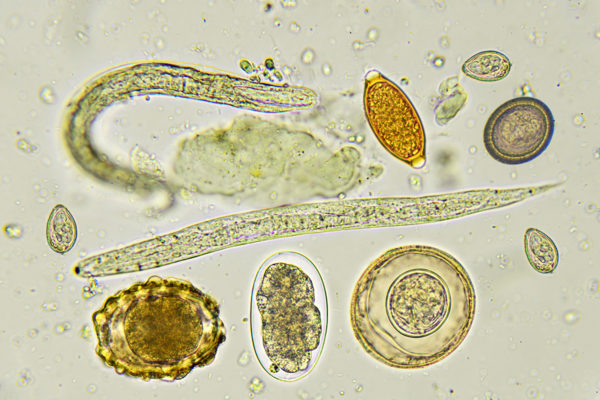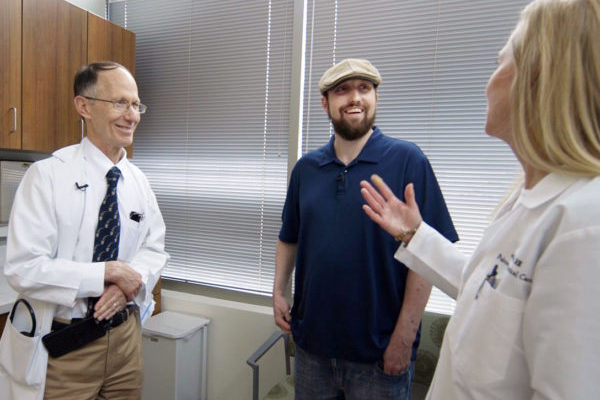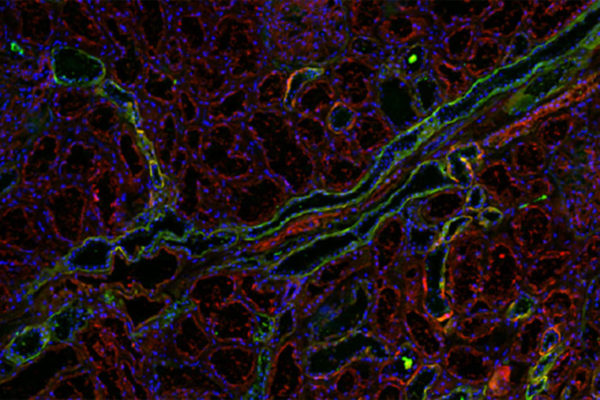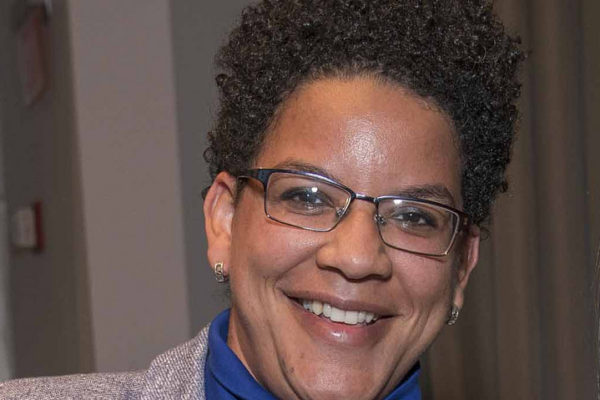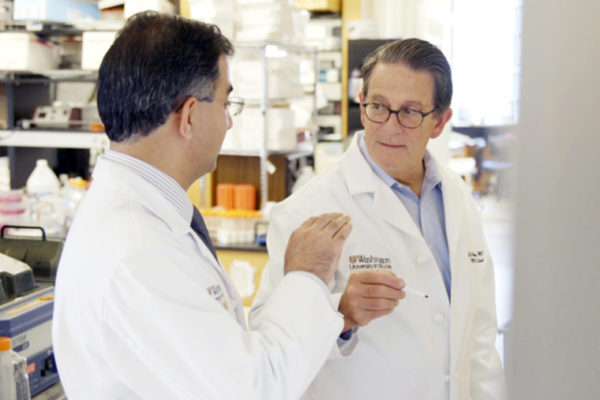Higher doses of radiation don’t improve survival in prostate cancer
A new study shows that higher doses of radiation do not improve survival for many patients with prostate cancer, compared with the standard radiation treatment. The analysis, which included 104 radiation therapy oncology groups across North America, was led by researchers at the School of Medicine.
Landau memorial service planned April 7
A service celebrating the life of William Landau, MD, professor emeritus of neurology at Washington University School of Medicine in St. Louis, will be at 1 p.m. April 7 in Moore Auditorium on the Medical Campus.
No progress seen in reducing antibiotics among outpatients
Despite public health campaigns aimed at reducing unnecessary prescriptions for antibiotics, the drugs continue to be prescribed at startlingly high rates in outpatient settings such as clinics and physician offices, according to a new School of Medicine study.
Gut microbes influence severity of intestinal parasitic infections
A new School of Medicine study indicates that gut microbes influence the severity of parasitic worm infections in developing countries. The findings suggest that manipulating the gut’s microbial communities may offer protection.
New way to fight sepsis: Rev up patients’ immune systems
A small clinical trial led by Richard S. Hotchkiss, MD, at the School of Medicine, shows that a drug that revs up the immune system holds promise in treating sepsis. The approach goes against the grain of earlier strategies that have relied on antibiotics and inflammatory medications to tamp down the immune system.
Ladenson honored by clinical chemistry society
Jack H. Ladenson, the Oree M. Carroll and Lillian B. Ladenson Professor of Clinical Chemistry in Pathology and Immunology at Washington University School of Medicine in St. Louis, has received the 2017 Distinguished Award for Contributions to Cardiovascular Diagnostics from the International Federation of Clinical Chemistry.
Decoy molecules target E. coli to treat UTIs in mice
School of Medicine researchers report they found a way to treat urinary tract infections without using antibiotics, at least in mice. The scientists are working on an alternative that would prevent bacteria from causing disease.
Healing the deep wounds of violence
With the creation and launch this summer of the St. Louis Area Hospital-Based Violence Intervention Program (STL-HVIP), a citywide network of hospital-based intervention and ongoing support, the St. Louis medical community is taking a significant step to help patients heal from acts of violence.
Academy of Science-St. Louis honors three researchers
Three researchers at Washington University in St. Louis, Raj Jain, David Kirk and Stuart Kornfeld, are being honored for outstanding contributions to science by the Academy of Science-St. Louis.
CRISPR enhances cancer immunotherapy
Scientists at the School of Medicine have used the gene-editing technology CRISPR to engineer human T cells that can attack human T cell cancers without succumbing to friendly fire. The study evaluating the approach in mice appears online in the journal Leukemia.
View More Stories
